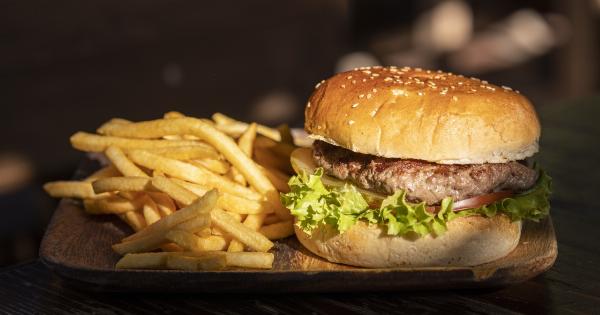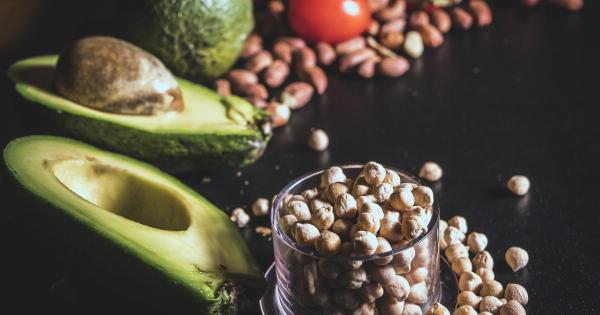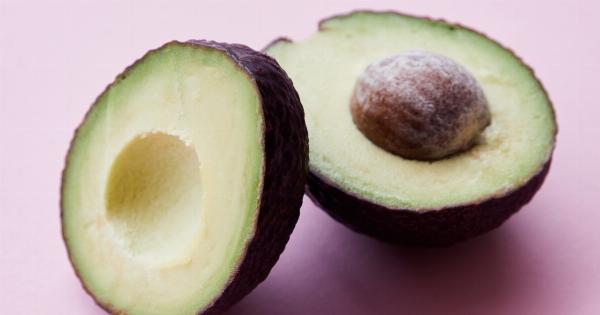The classic American burger has long been a staple of fast food culture. Its juicy patty, melted cheese, and array of toppings have made it a beloved go-to meal for many.
However, as concerns over nutrition and the environmental impact of meat consumption rise, the need for healthier and more sustainable burger options has become more apparent. Fortunately, a new wave of innovation is revolutionizing the burger landscape, offering tantalizing alternatives that satisfy both our taste buds and our conscience.
The Rise of Plant-Based Burgers
One of the most exciting developments in the world of burgers is the rise of plant-based alternatives. These innovative creations mimic the taste, texture, and appearance of traditional meat patties while being entirely composed of plant ingredients.
Companies like Beyond Meat and Impossible Foods have taken the lead in this revolution, developing plant-based burgers that are remarkably similar to their animal-based counterparts. Made from ingredients such as soy, peas, and beets, these burgers offer a healthier alternative without compromising on taste.
The Health Benefits of Plant-Based Burgers
Replacing traditional beef patties with plant-based alternatives brings a host of health benefits. First and foremost, these burgers are significantly lower in saturated fat, cholesterol, and calories compared to their meat counterparts.
This is a welcome change for those mindful of their cardiovascular health and weight management. Additionally, plant-based burgers are often higher in fiber and essential nutrients, such as vitamins and minerals, which are derived from their plant-based ingredients.
Moreover, plant-based burgers provide an excellent protein source without the environmental strain associated with meat production.
Traditional livestock farming is a significant contributor to greenhouse gas emissions, deforestation, and water pollution. By opting for plant-based alternatives, consumers can decrease the negative impact on the planet while still enjoying a familiar and satisfying meal.
Beyond Beef: Exploring Alternative Meat Sources
In addition to plant-based burgers, researchers are also exploring alternative meat sources that are more sustainable and ethical than traditional livestock farming.
One such development is the creation of cultured meat, also known as lab-grown or cultivated meat. This concept involves growing real animal meat from animal cells in a laboratory setting, eliminating the need for animal slaughter.
Cultured meat offers a promising solution to several ethical concerns surrounding meat production.
It reduces the suffering of animals, eliminates the need for antibiotics often used in farming, and consumes fewer resources than traditional livestock farming. While cultured meat is still in its early stages of development, it holds great potential in revolutionizing the burger industry, providing a guilt-free meat option to consumers.
Innovative and Sustainable Ingredients
Alongside the rise of plant-based and cultured meat, a plethora of innovative and sustainable ingredients are transforming the burger scene.
Manufacturers are experimenting with a wide range of sources and formulations to create healthier and more environmentally friendly options.
One such ingredient gaining popularity is the black bean patty. Black beans are not only packed with protein but also high in fiber, vitamins, and minerals.
Paired with a variety of spices, vegetables, and grains, black bean burgers offer a flavorful and nutritious alternative to traditional beef burgers.
Another exciting ingredient that has taken the culinary world by storm is the use of mushrooms. Mushrooms have a meaty texture and a rich umami flavor, making them a fantastic substitute for traditional beef.
They are low in calories, fat, and cholesterol, while providing essential vitamins and minerals.
Quinoa, a versatile grain, has also found its way into the burger scene. This ancient grain is a complete protein source, containing all nine essential amino acids.
Quinoa burgers are not only highly nutritious but also gluten-free, making them an inclusive option for those with dietary restrictions.
Broccoli and cauliflower may not be typical burger ingredients, but they are gaining recognition for their versatility and nutritional value. These cruciferous vegetables can be transformed into delicious and surprisingly burger-like patties.
Packed with fiber, vitamins, and antioxidants, broccoli and cauliflower burgers provide a healthy and unique alternative.
Reimagining Burger Toppings
While the patty is the heart of any burger, the toppings play an integral role in enhancing the overall taste and experience. As the burger landscape evolves, so do the possibilities for alternative toppings that are both delicious and nutritious.
Avocado, often referred to as nature’s butter, has skyrocketed in popularity as a burger topping. Rich in healthy fats and loaded with vitamins and minerals, avocado adds creaminess and a unique flavor profile to any burger creation.
Instead of traditional processed cheeses, many alternative burgers now feature plant-based cheeses made from nuts or soy.
These cheeses offer the same melty texture and sharp flavor as traditional cheese but without the cholesterol and animal-based ingredients.
Burger enthusiasts are also experimenting with various vegetable toppings, such as caramelized onions, grilled peppers, and roasted eggplant.
These additions not only provide extra flavor and texture but also contribute vital nutrients to the overall meal.
And let’s not forget about the condiments! Classic ketchup and mustard are being challenged by innovative alternatives like sriracha mayo, chipotle aioli, and avocado-lime dressing.
These flavorful options add a zing to the burger experience while providing unique health benefits.
The Future of Burgers: Healthier and Sustainable
The burger industry is undergoing a remarkable transformation, embracing healthier and more sustainable options that cater to the changing preferences of consumers.
Whether through plant-based alternatives, cultured meat, or innovative ingredients, the status quo of the classic beef burger is being challenged.
As individuals become increasingly conscious of their health and the environmental impact of food choices, the demand for healthier and more sustainable burgers continues to grow.
Restaurants, food manufacturers, and entrepreneurs are responding with a diverse range of options that maintain the essence of a burger while offering exciting alternatives.
This revolution in burgers is not only beneficial for individuals but also for the planet.
By making conscious choices about the food we consume, we can contribute to mitigating climate change, reducing deforestation, and preserving precious resources for future generations.
Conclusion
The burger landscape is changing, and the future looks promising.
Plant-based burgers, alternative meat sources, innovative ingredients, and exciting toppings are enabling us to enjoy a satisfying meal while embracing our health and sustainability goals. It’s time to revolutionize the way we think about burgers and build a healthier and more sustainable tomorrow.































